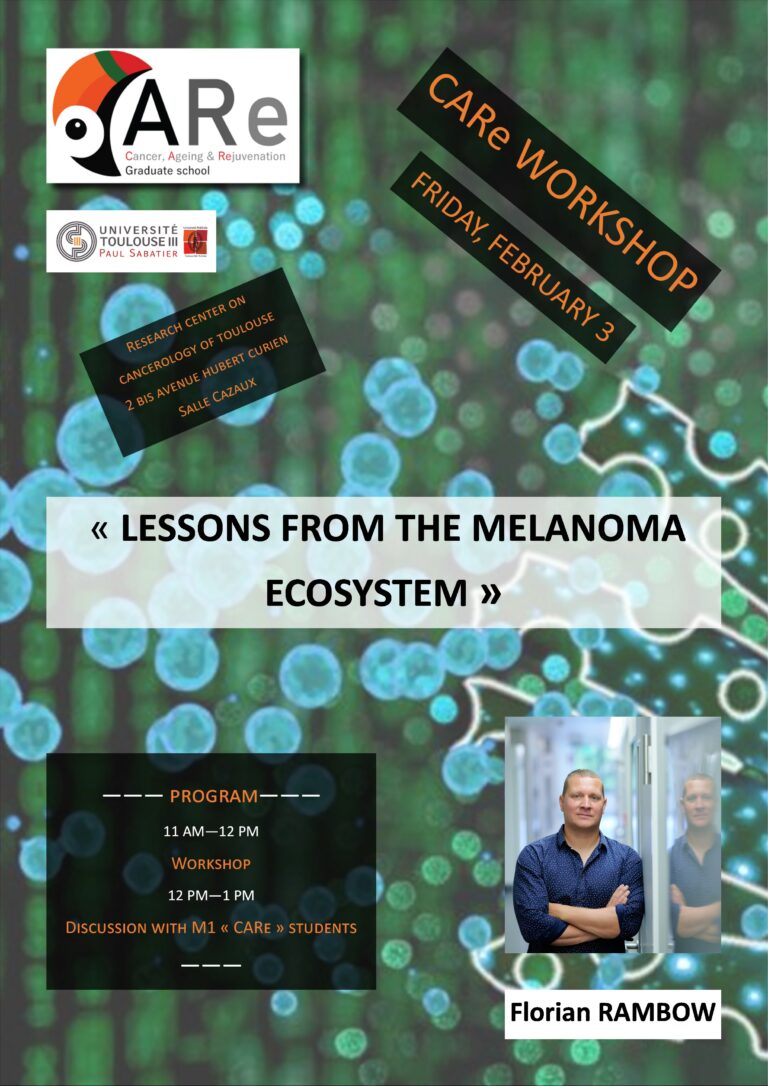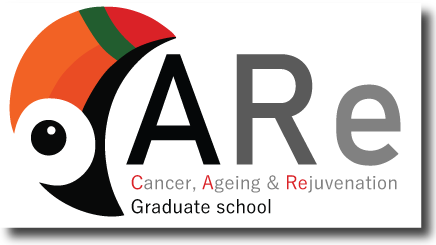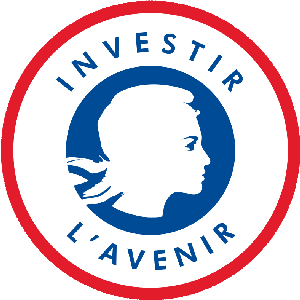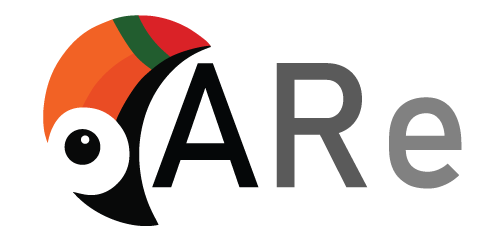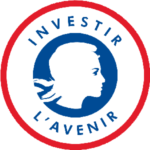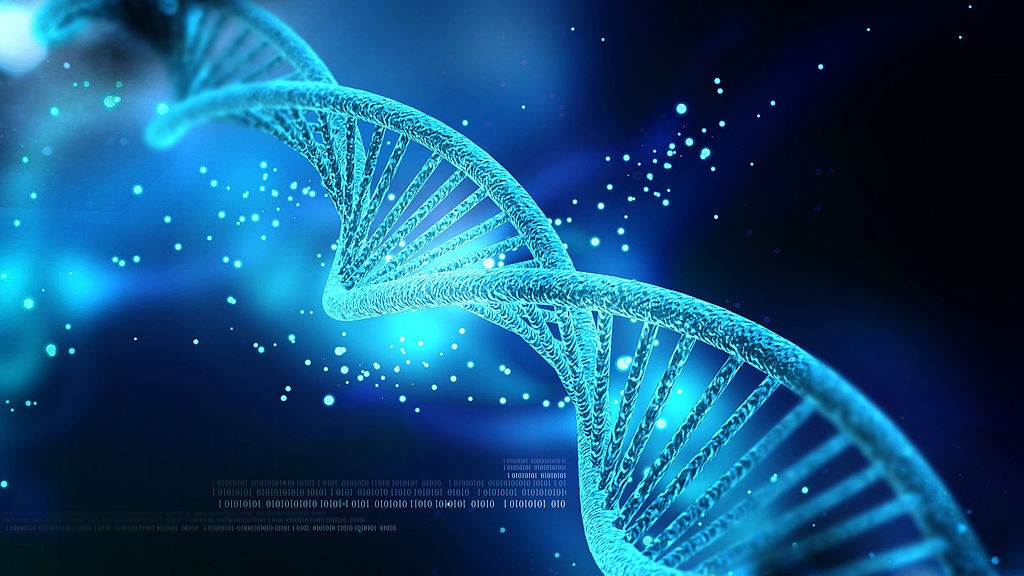On Friday, February 3rd, Pr Florian Rambow from the Institute for AI in Medicine (IKIM) University Hospital of Essen will give a lecture about resistance in Immune Checkpoint blockade in melanoma.at the Center of Research in Cancerology of Toulouse from 11 am to 12 pm.
» Primary resistance drastically limits the clinical success of immune checkpoint blockade (ICB) in melanoma. Resistance to ICB may also develop when tumours relapse after targeted therapy. To identify cancer cell-intrinsic mechanisms driving resistance to ICB, we generated single-cell RNA-sequencing (scRNA-seq) data from a prospective longitudinal cohort of patients on ICB therapy, including an early time point obtained after only one cycle of treatment. Comparing these data with murine scRNA-seq datasets, we established a comprehensive view of the cellular architecture of the treatment-naïve melanoma ecosystem, and defined 6 evolutionarily conserved melanoma transcriptional metaprograms. Spatial multi-omics revealed a non-random geographic distribution of cell states that is, at least partly, driven by the tumour microenvironment. The single- cell data allowed unambiguous discrimination between melanoma MES cells and cancer-associated fibroblasts both in silico and in situ, a long-standing challenge in the field. Importantly, two of the melanoma transcriptional metaprograms were associated with divergent clinical responses to ICB. While the Antigen Presentation cell population was more abundant in tumours from patients who exhibited a clinical response to ICB, MES cells were significantly enriched in early on-treatment biopsies from non-responders, and their presence significantly predicted lack of response. Critically, we identified TCF4 (E2-2) as a master regulator of the MES program and suppressor of both MEL and Antigen Presentation programs. Targeting TCF4 expression in MES cells either genetically or pharmacologically using a bromodomain inhibitor increased immunogenicity and sensitivity to targeted therapy. »
